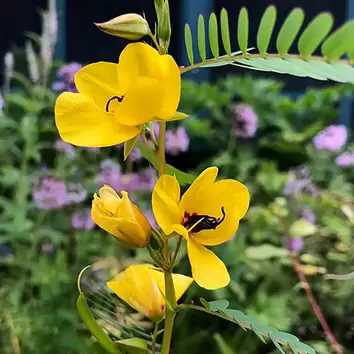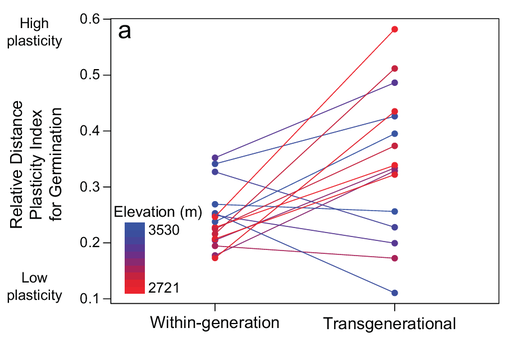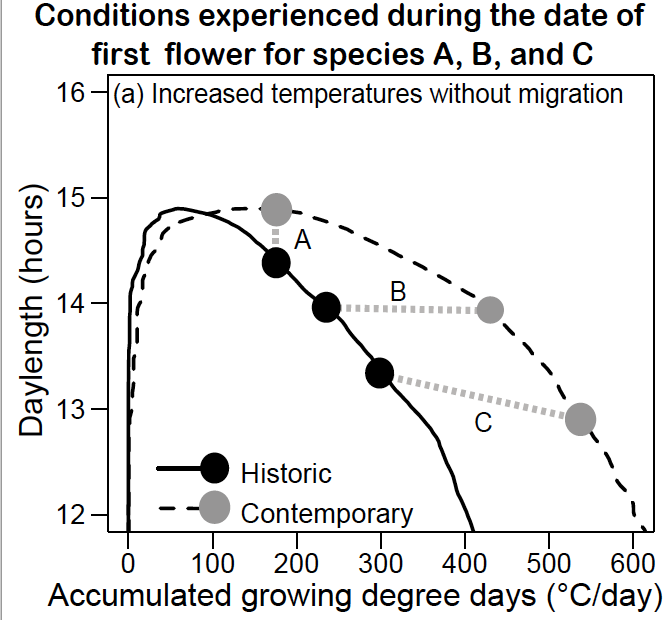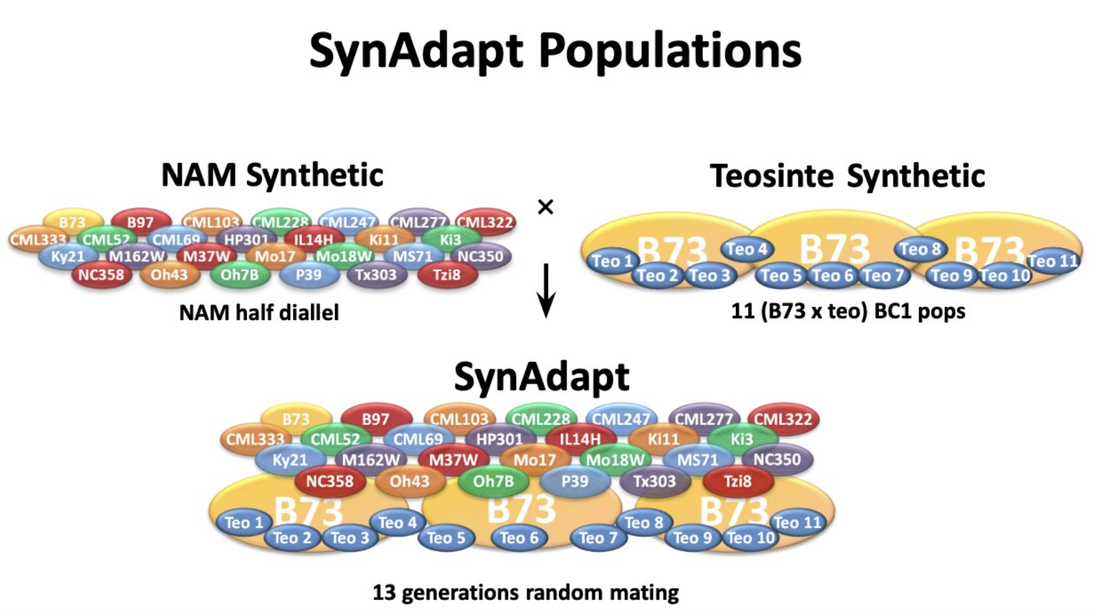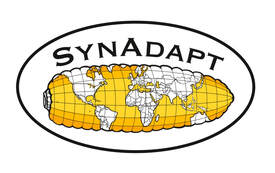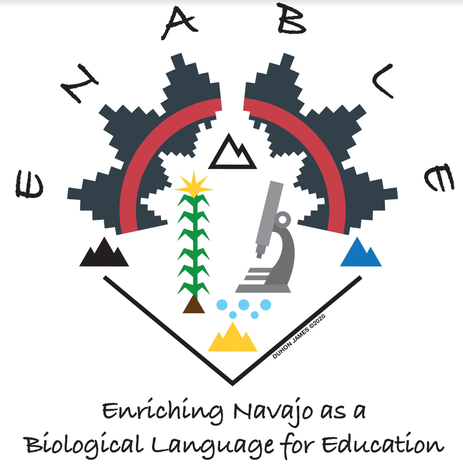Research
Our research addresses key questions in ecology, conservation, and evolutionary biology by integrating field-based, greenhouse, and growth chamber experiments with laboratory and analytical techniques.
You do not have to have a research project in mind before conducting research in my lab. We will collaborate on developing a project together! Collaborations with students have made my research expand in new, fun, and interesting directions.
You do not have to have a research project in mind before conducting research in my lab. We will collaborate on developing a project together! Collaborations with students have made my research expand in new, fun, and interesting directions.
Integrating the evolutionary and migratory potential of Chamaecrista fasciculata into forecasts of range-wide population dynamics under climate change
|
Populations across species' ranges likely vary in their potential to migrate or adapt under climate change, yet we lack a comprehensive understanding of which populations are most vulnerable to climate change because forecasts of range shifts often fail to account for population-level variation in plasticity and genetic variation. We can possibly improve mechanistic predictions of range dynamics under climate change by modeling genomic variation, gene flow rates, plasticity, and additive genetic variances in traits and fitness.
My lab is collaborating on this NSF-funded project with a highly accomplished team of researchers, including Drs. Jill Anderson (University of Georgia), Megan DeMarche (University of Georgia), Seema Sheth (North Carolina State University), Emily Josephs (Michigan State University), and Jenny Cruse-Sanders (State Botanical Garden of Georgia). |
We are combining approaches from evolutionary biology, field ecology, and population genomics to forecast range-wide dynamics under climate change in a native legume (Chamaecrista fasciculata) that is broadly distributed across central and eastern North America to address the following aims:
Our work will provide a robust framework for predictions of range-wide responses to climate change in systems that are less amenable to manipulation. We will collaborate with conservation practitioners in the Georgia Plant Conservation Alliance and Southeastern Grasslands Initiative to produce risk assessment tools that project range dynamics under climate change for endangered plant species.
- Examine the migratory potential of populations under climate change using population genomic estimators of historical gene flow.
- Evaluate adaptive potential by exposing paternal half-sib families from 12 populations to contemporary climates and simulated climate change in common gardens across the range.
- Forecast eco-evolutionary dynamics under climate change using models that differ in the degree to which they incorporate data on species occurrence, additive genetic variance in fitness in response to climate, trait expression, sequence variation, and gene flow.
Our work will provide a robust framework for predictions of range-wide responses to climate change in systems that are less amenable to manipulation. We will collaborate with conservation practitioners in the Georgia Plant Conservation Alliance and Southeastern Grasslands Initiative to produce risk assessment tools that project range dynamics under climate change for endangered plant species.
Fitness consequences of plasticity
|
An organism's phenotype is the product of genetics and the environment. The environmental contribution, or plasticity, can arise from conditions experienced during an organism's development, but can also emerge in response to the conditions experienced by its parents. We study interactions between within-generation and transgenerational plasticity and their effects on phenotypic variation and fitness using a variety of environmental manipulations and study species. Topics of investigation include maternal vs. paternal environmental effects, the influence of mating system and the pollination environment, and the role of DNA methylation in generating transgenerational responses (in collaboration with Dr. Debbie Thurtle-Schmidt). |
Effects of climate change on life history traits
|
In plants, life history transitions are often initiated by dependable combinations or sequences of cues that are indicative of favorable conditions. We are exploring the consequences of shifting conditions on growth and development in several ways:
|
Adaptive evolution in maize
|
Cultivated corn was derived ~9000 years ago from the domestication of Zea mays spp. parviglumis, an annual plant from the Teosinte group of grasses. Dr. Sherry Flint-Garcia (University of Missouri) has created a genetically-diverse synthetic population of maize (known as SynAdapt) by hybridizing several cultivars of corn with multiple natural ecotypes of teosinte. SynAdapt is an ideal experimental system to explore adaptive evolution given that adaptation via natural selection requires genetic variation. To observe adaptation in real time, researchers from all over the world are growing sequential generations of SynAdapt and monitoring the genetic and phenotypic changes that occur over time. My lab is participating in this global collaboration by growing SynAdapt each summer at Davidson College's Ecological Preserve. Each generation, we monitor the growth, survival, pest-damage, and fitness of individual plants, conduct phenotypic selection analyses, measure responses to selection, and estimate heritability. We will eventually conduct a resurrection experiment to quantify the the extent of adaptation to local conditions that has occurred and hope to identify the origin (corn vs. teosinte) of genetic variants associated with fitness components and traits under selection.
|
Project ENABLE
|
In collaboration with Sterling Martin and Joanna Bundus, Susana founded Project ENABLE, which is an online resource for Enriching Navajo as a Biology Language for Education. We present new and existing biology terminology in Diné Bizaad as a way to preserve this language while also enabling better scientific communication. Ongoing efforts include an expansion of the content of the dictionary, a series of STEM identity, and the creation of education materials to help people understand these biological concepts and to learn the terminology in Diné Bizaad. Project website: enablenavajo.org/navajo/ More information: spectrumnews1.com/wi/milwaukee/news/2021/10/11/breaking-language-barriers--project-enable-creates-new-navajo-words-for-scientific-terms |
